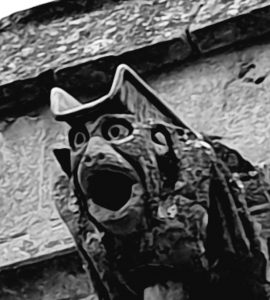
Media reports and a press release from the CPS detailed the conviction of Dr Hossam Metwally for administering potentially lethal drugs to his partner in the course of religious rituals, intended to free her from jinn, or evil spirits. Unsurprisingly, the sensational and bizarre facts of the case have drawn a lot of attention and speculation, and it seems probable that some aspects of the story will never be fully understood. The defendant was an experienced anaesthetist, and a Muslim of Egyptian origin. It is true that Ruqya, or exorcism, is accepted and practised widely within many Islamic communities: however the use of drugs or other toxins is certainly not something that would ordinarily feature. In fact, not only would such an approach be deviant and condemned by scholars from all mainstream traditions of the faith, it is not even well recorded as a fringe practice. It is remains unclear why the convicted doctor decided that such an unorthodox tactic was useful or needed, but his behaviour almost cost his partner her life.
Without doubt however, subjecting a possessed human body to hardships, as a method of expelling an evil parasite, is a common trope in many cultural contexts. Even though this kind of exorcism is contrary to the official tenets of the larger branches of Christianity, Islam, Buddhism, Paganism and other faiths, it is embraced by minority groups and maverick individuals. Obviously, the average person on the street does not have access to the kinds of drugs or methods of administration used by the defendant in this instance, and it may simply be that he selected the tools easily available to him. In other words, although the methods employed were rare and therefore striking, the fundamental behaviour was well recorded. Abusive practices in the context of extreme exorcisms are a recognised challenge, affecting adult as well as child victims.
Furthermore, it appears that the defendant’s partner cooperated in the ritual, and trusted him completely. Again, this feature is not unusual, and did not prevent Dr Metwally from being convicted of a string of offences, a decision in keeping with previous rulings where someone undergoing an exorcism has suffered death or serious injury. English courts have been consistent in their refusal to allow consent even to be argued as a defence in these situations, and we would support this conclusion.
In many cases where serious injury or abuse is inflicted during the course of an exorcism ritual, the perpetrators are not religious leaders, but close relatives of the victim. Whilst this is not always the dynamic at play, exorcism related abuse is very frequently domestic abuse. Here the recipient of the exorcism is doubly disempowered: they have the fear, stigma and pressure of being told that they are under the influence of an evil entity, and duress from individuals whom they often love and depend upon. Against this backdrop, allowing even the potential escape route of consent would be extremely dangerous. Religious freedom is without doubt a fundamental right, but it is not an absolute one, as Article 9 of the ECHR explicitly affirms. It is legitimate, and indeed necessary, for State authorities to step in to protect the vulnerable, and allowing consent as a defence to a form of domestic abuse would be to unacceptably deprioritise the rights of those needing protection.
As stated at the outset, it may never be known exactly what motivated this particular defendant, but regardless of his motivations, it was appropriate and necessary that his actions were criminalised.
Related Articles
Former anaesthetist found guilty of poisoning his partner during exorcism rituals Crown Prosecution Service (6/8/21)
Dr Hossam Metwally poisoned partner in exorcism ritual BBC News (6/8/21)


